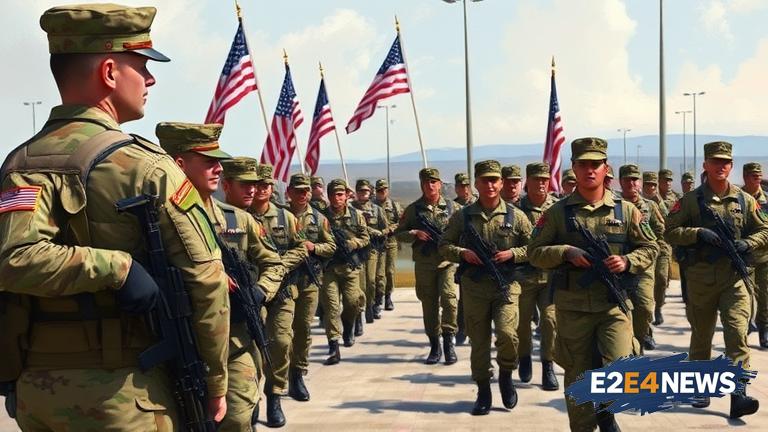The recent deployment of the National Guard has sparked a heated debate over the extent of presidential authority and the potential for military involvement in domestic matters. According to a report by Fox News, the National Guard has been deployed to various parts of the country to assist with law enforcement and maintain public order. This move has been met with both support and criticism, with some arguing that it is a necessary measure to ensure public safety, while others claim that it is an overreach of executive power. The issue has been further complicated by the fact that the President has the authority to deploy the National Guard without the need for congressional approval. This has led to concerns that the President may be able to use the military to enforce their will without being held accountable by the legislative branch. The deployment of the National Guard has also raised questions about the role of the military in domestic affairs and the potential for the blurring of lines between civilian and military authority. Some have argued that the use of the military in domestic matters could lead to a erosion of civil liberties and the potential for human rights abuses. Others have pointed out that the National Guard is a unique institution that is designed to serve both federal and state interests, and that its deployment is subject to a range of checks and balances. The debate over the deployment of the National Guard has also highlighted the need for greater clarity and transparency in the decision-making process surrounding the use of military force in domestic matters. This includes the need for clear guidelines and protocols for the deployment of the National Guard, as well as greater oversight and accountability mechanisms to ensure that the military is used in a responsible and lawful manner. The issue has also sparked a wider debate about the nature of presidential power and the limits of executive authority. Some have argued that the President has the authority to take bold action to protect national security and public safety, while others have claimed that this approach is a threat to the rule of law and the principles of democracy. The deployment of the National Guard has also raised questions about the potential for the militarization of law enforcement and the impact that this could have on community relations and social cohesion. Furthermore, the issue has highlighted the need for greater investment in community-based initiatives and social programs to address the root causes of social unrest and public disorder. The debate over the deployment of the National Guard is likely to continue in the coming weeks and months, with both supporters and critics of the move presenting their arguments and perspectives. As the situation continues to unfold, it is likely that we will see a range of different opinions and perspectives on the issue, reflecting the complexity and nuance of the debate. The use of the National Guard in domestic matters is a complex and multifaceted issue that requires careful consideration and analysis. It is an issue that raises important questions about the role of the military in society, the limits of presidential power, and the need for greater transparency and accountability in the decision-making process. The deployment of the National Guard has also sparked a wider debate about the nature of national security and the ways in which it can be protected and promoted. This includes the need for a range of different approaches and strategies, including diplomacy, development, and defense. The issue has also highlighted the need for greater international cooperation and collaboration to address the global challenges and threats that we face. In conclusion, the deployment of the National Guard has raised important questions about the limits of presidential authority and the role of the military in domestic affairs. It is an issue that requires careful consideration and analysis, and one that is likely to continue to be debated in the coming weeks and months. The use of the military in domestic matters is a complex and multifaceted issue that raises important questions about the nature of national security, the limits of presidential power, and the need for greater transparency and accountability in the decision-making process.
